The basic rule of international power politics is simple: The stronger and more aggressive countries tend to dominate — that is, unless other countries can pull together an alliance to defend themselves.
As Machiavelli explained in The Prince, when confronted by an offensive threat, the shrewd leader seeks to “make himself the head and defender of his less powerful neighbors” — that is, a defensive alliance. And of course, if the defensive alliance grows to be strong enough, it can do more than defend itself — it can actually defeat the threat.
In the West, the archetypal study of power alliances comes from the Greek historian Thucydides, who chronicled the Peloponnesian War in the fifth century BCE. At the outset of the conflict, Athens had the edge, and yet Sparta created an effective counter-alliance, including even the historic enemy of the Greeks, Persia. And so the Athenians were disastrously defeated.
If we think about it, virtually every war since, anywhere, is a variation on these themes: Which side can pull together the stronger force? Yes, skilled generalship and brave soldiering can overcome odds, but even then, victory comes to the side that can better aim its fighting power at the enemy’s weakness — at what Clausewitz called the entscheidender Punkt (the decisive point).
With these lessons in mind, in Part One of this series, we observed that a past president, Franklin D. Roosevelt, gambled on good relations with Russia because he wanted the help of the Red Army to defeat Hitler’s Wehrmacht in the Second World War. And in Part Two, we noted that while the opponents of Roosevelt’s alliance policy made compelling arguments, the arguments for FDR’s alliance strategy were stronger.
In fact, the alliance that Uncle Sam put together back then, including the Soviet Union, numbered more than a billion people; by contrast, the Axis had fewer than a quarter that many. To be sure, the Allied victory was neither easy nor cheap, and yet the numerical advantage — including associated war-materiel advantages — guaranteed an Allied win.
So now, in the third and concluding part of this series, we can consider how the lessons of past successes can light the path for us today, as we confront the next big geopolitical challenge: the threat from China.
By now, it’s obvious that China is the major rival to the U.S. Yes, the Russians, or the Iranians, or ISIS, might get more attention, but students of geopolitics know that China, with quadruple the population of the U.S. and an economy growing faster than ours, is the ultimate threat.
The scholar Michael Lind, now at the LBJ School at the University of Texas, has long written knowingly about American strategy; recently, he has argued that as we face China, we are already in Cold War II. And in this Second Cold War, Lind continues:
The U.S. must play to its strengths, which are in technology and economics. While avoiding the danger of being trapped in prolonged and costly proxy wars, the U.S. must also avoid wasting precious defense dollars on equipping the military for imaginary conventional naval wars with China or ground wars with Russia that will never happen. In Cold War II, economic instruments will eclipse military instruments in importance, without replacing them entirely.
In other words, Lind is saying, we don’t have time for stupid sideshow-scenarios, including, as Lind puts it, “imaginary” land wars with Russia.
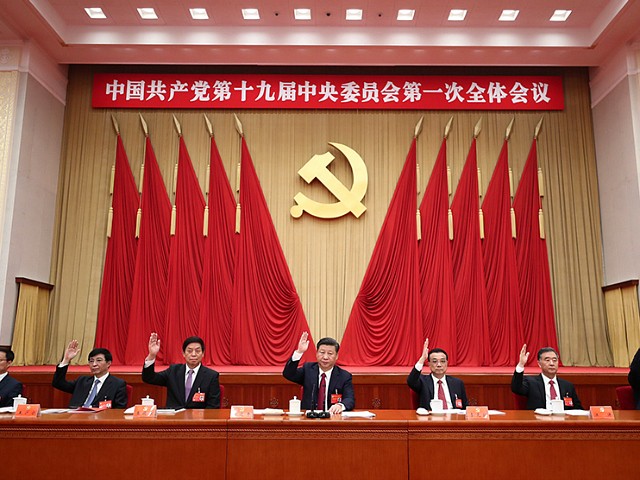
first plenary session of the 19th Communist Party of China Central Committee at the Great Hall of the People in Beijing (Xinhua/Ju Peng via Getty Images)
Instead, we must keep our eye on the ball — the ball of advanced technology, and the military muscle that high-tech enables. Through this strategic prism, we can quickly see that transfers of American technology to China — the transfers that we knew about, and those that we didn’t — have gravely jeopardized our position in the world. And yes, too, many of the foreign-policy choices made by Washington, DC, these past two decades look profoundly foolish: We gained nothing from “liberating” Iraq in the Bush 43 era, nor did we gain anything from focusing on “climate change” under President Obama.
Still, there’s good reason to believe that, under new leadership, we can recover our preeminence. Thanks to President Trump, the U.S. economy is growing much faster now, and it’s obvious that the 45th president sees no upside in endless Middle Eastern counter-insurgencies. Moreover, he withdrew the U.S. from the Paris Climate Agreement; we might even recall that way back in 2012, Trump derided “climate change” as nothing more than a Chinese scheme to de-industrialize the U.S. (As an aside, we might ask: Do the Democrats, joined by Never Trump Republicans, really believe that they will gain votes by pledging to reverse these Trump policies?)
In fact, we can see encouraging signs that the chattering classes are starting to catch up to the reality of the China Threat. For instance, there’s this recent AP headline: “CIA: China is waging ‘a quiet kind of cold war’ against US.” And of course, implicit in a cold war is preparation for a possible hot war; as the article noted, the People’s Liberation Army is testing its long-range cruise missiles at 20 times the rate as our Department of Defense.
Again, the key variable in national strength is technology. And that’s why it’s so painful to see what the Chinese have done to us in recent decades. As Rob Atkinson, head of the Information Technology and Innovation Foundation, explained recently:
China has deployed a vast panoply of “innovation mercantilist” practices that seek to unfairly advantage Chinese producers. These include requiring foreign companies to transfer their technologies to Chinese firms in order to access the Chinese market; theft of foreign intellectual property; manipulation of technology.
And in the words of Columbia University historian Adam Tooze, the Chinese are pulling together their technology and their military goals into “an integrated national economic team … It is a fearsome prospect [emphasis added].”
We might note that Tooze wrote before the revelation that an alleged spy for China had found his way on to the staff of Sen. Dianne Feinstein, the past chair of the Senate Intelligence Committee, and now its ranking Democrat. In an appalling counter-intelligence failure, the suspect was not arrested or jailed, but rather, allowed to resign and return to China, where, Fox News reports, he “probably got an award.”
So yes, China, in so many ways, is a “fearsome prospect,” and the U.S. shouldn’t want to face it alone, any more than FDR wanted to face Germany alone in 1941.
Yes, alliances can be vital. We have already looked at World War Two, and we can look back further to World War One, recalling that we fought Germany with the help of the British, French, Italians, and Russians. And if we wanted to, we could look back even further, to the American Revolution, when we rebels had the benefit of a coalition that included France, Holland, and Spain. It takes nothing away from the courage and valor of American soldiers to note that we also had the help of skilled diplomats orchestrating these alliances.
Virgil could go on tracing the history of coalitions all the way to, yes, Thucydides. And while it’s not obvious that Trump is familiar with ancient history, it is obvious that he gets the idea that the wise prince makes sure that his alliance is bigger than the other guy’s. The fact that Trump has maintained that sort of Everyman intellectual clarity — defying the mental occlusion that comes from seeking to accommodate too many divergent goals — helps explain why he is president. Clarity comes from, well, seeing things clearly.
Interestingly, some haute observers are noticing what Trump is doing. For instance, Mark Leonard, director of the European Council on Foreign Relations, wrote recently in The Financial Times of his conversations with Chinese leaders and intellectuals, “many of whom are awed by [Trump’s] skill as a strategist and tactician.”
Leonard adds that China fears Trump is “systematically destroying” existing international institutions, such as the World Trade Organization, the North American Free Trade Agreement, and NATO, but only “as a first step towards renegotiating the world order on terms more favorable to Washington.” Those organizations, Trump believes, have bled away American power. For their part, the Chinese, of course, have been happy to see us bleeding, and so they are understandably sorry to see Trump applying a tourniquet.
Indeed, Leonard continues, as the Chinese watch Trump interacting with Vladimir Putin, “They see it as Henry Kissinger in reverse.” That is, back in 1972, then-National Security Adviser Kissinger wooed China as a way of weaning it away from the Soviet Union. As always, the wise prince seeks to break up opposing coalitions.
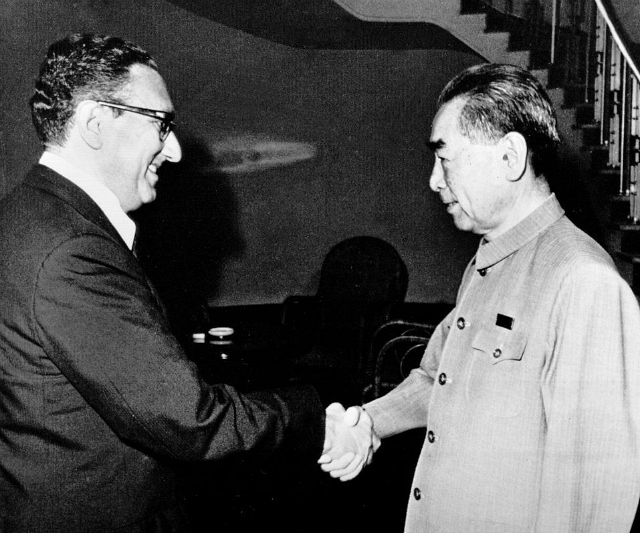
National Security Adviser Henry Kissinger with Chinese Premier Zhou Enlai of the People’s Republic of China, 1971 (AP Photo)
Now today, the Chinese fear, the Americans are engaged in a new kind of wooing — wooing the Russians away from them. As Leonard puts it, “Trump is reaching out to Russia in order to isolate China.”
Without a doubt, the equation of Trump to Kissinger is confounding to most media mavens, as well as much of the foreign policy establishment; the “experts” are deeply invested in the notion that Trump is nothing more than a blowhard.
Yet even here, there are signs that the anti-Trump wall is cracking. For instance, there’s Seth Ackerman, who writes for the lefty Jacobin. Ackerman wrote recently that China’s respect for Trump is startling to him; it reminds him of France’s unexpected admiration for the slapstick comedian Jerry Lewis. Still, unlike most of his fellow chatterers, Ackerman is willing to allow for the possibility that he has misjudged Trump: “Who knows, maybe history will prove [the Chinese] right.”
Interestingly, another observer who regards Trump with increasing respect is Edward Luce, a columnist for The Financial Times. Under the headline, “China should really start to worry about Trump,” Luce reports that the president is actually succeeding in his effort to rally Europeans, as well as American business, to confront the China Threat.
That is, Trump is building a new grand coalition for the 21st century. And in any century, that is how you win.
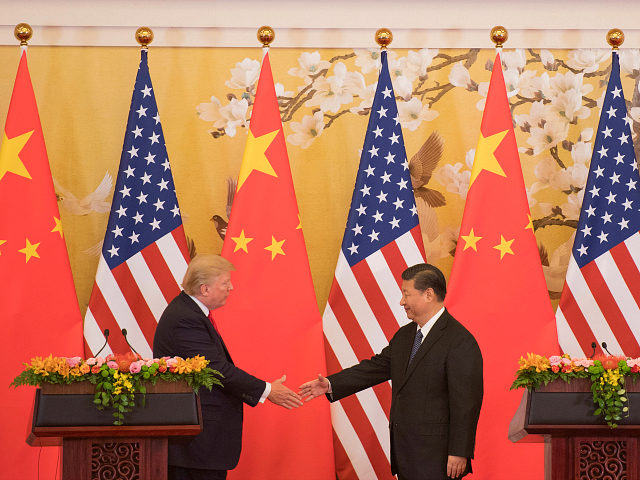
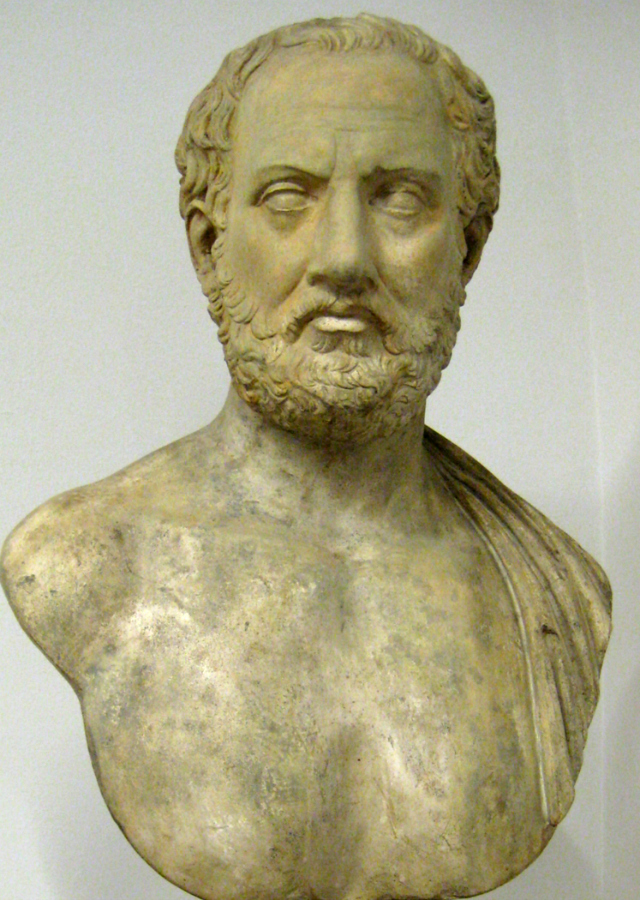
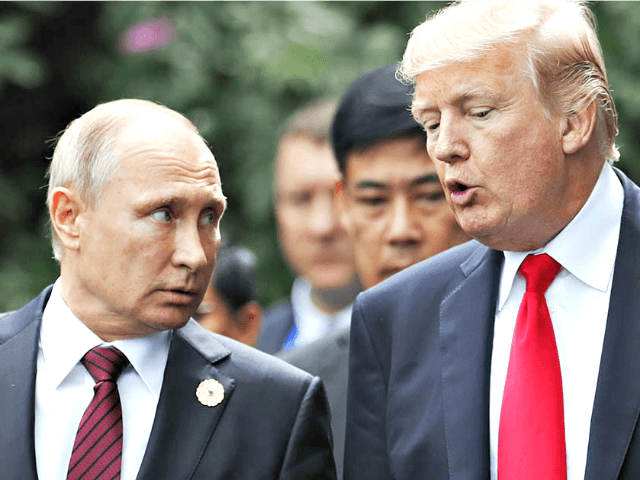
COMMENTS
Please let us know if you're having issues with commenting.